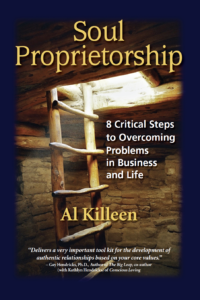As we each face the daily challenges of modern business and life, we have to approach our effectiveness in new ways. In today’s “Information-based economy”, we are going to have abundant new resources and tools from which we may choose to operate.
However, the one critical variable that must be mastered to be effective for most Leaders and Managers is the “People-ware” aspect of business…
What is your process for recruiting talent, assessing it, and growing it within your Team?
If you don’t have a systematically effective approach to this issue, all of your other resources, tools and opportunities may be irrelevant…
&&&
Today’s Issue: “How to Choose and Optimize The People For Your Team”
If you personally work with any business today for anything from a hamburger to a computer to a service, the most likely predictor of your opinion of that business is going to be the people within it that you interface with to execute your transaction. The people that represent that business, along with the quality of the product and the experience that you have in receiving the product will comprise the “value proposition” of that business that will determine your desire to work with them again, as well as refer them to your network of friends when they need those hamburgers, computers or services.
If you receive qualitative and competent service from people who work for that business, along with the rest of the promised “value proposition” of quality, experience, etc., you will have a positive opinion of that entity and want to work with them again (as well as refer them). If you don’t receive any one of those three critical elements (i.e. people, quality and experience) you won’t. And in the new “information-based” economy with the unprecedented access that consumers now have for any imaginable service that they desire, you will lose precious customers and endanger the success of your business.
Below are two examples of how the experience may go…:
Example 1: The Nightmare on Hamburger Street:
I was at the airport last night picking up my son from a trip and he was hungry so we went to the local fast food restaurant to get him some food. While waiting for 10 minutes in a short line while the young people (5 or 6) behind the counter discussed their night’s plans and flirted with other friends standing at the counter, I noticed other anxious customers looking at their watches and starting to fidget. Once the “team” of hamburger representatives noticed us (and I use the term “team” guardedly), one of them half-heartedly waved the next customer to the counter to go through a disinterested and disengaged script to discuss options to be ordered. Once ordered, the fee to be paid was mumbled in some unintelligible language and the customer offered the credit card to be swept. The food was eventually tossed at the customer on the counter and the “hamburger-specialist” waved up the next victim, which was me.
I stepped up and ordered the food my son wanted and my card was swept. Once I signed the receipt, the clerk noticed that what we ordered wasn’t available anymore that evening and informed me that I would have to choose something else. The crowd growing restless behind us, we quickly just picked anything to get away from these people and this energy vortex of disengaged and self-absorbed “service”. What we ordered cost far less than what was ordered originally, so when we finally had it tossed our way on the counter, I asked in as kind of a voice as possible what the clerk wanted to do with the obvious problem of having already paid for more food than we received.
Her comment through sleepy and genuinely contemptuous eyes was “Oh, don’t worry about it. It all costs about the same… It’s not worth voiding it and re-charging you…” Her demeanor was screaming: “I don’t want to be here and don’t care what you want or if you get it, so please just leave and don’t bother me any more so I can get through this shift and go on to my parties tonight!”
In this case, this national food restaurant chain is counting too heavily on the “value proposition” being the cost and convenience of their food, and managing their “people-ware” too little for it to not have a negative effect on their customer image. Maybe that’s why they are losing huge market share to newer companies who aren’t as passive in taking their customers for granted. They’ve lost their desire to stay accountable for excellence, and I’m sure that their founder is turning over in his grave at what has become of his incredible empire…
Example 2: The Committed Butterfly Bush Team:
By contrast to our airport experience, earlier in the day my wife and I went in search of a butterfly bush to plant in our yard. We went to a wonderful landscape farm outside of our neighborhood that is privately owned and huge. It has been there for 30 years and is still owned and run by the family who started it. When we looked around the vast grounds for a few minutes and couldn’t find what we wanted, I walked up to a middle-aged guy in jeans and boots amidst the bushes and tress and asked him if he worked here. He responded that he did and inquired what we wanted. We told him and he promptly asked us to jump into a waiting golf cart where he proceeded to spend the next 30 minutes driving us to the far reaches of this property to show us dozens of butterfly bushes that were available. As we drove, we talked…
He was the owner, although you wouldn’t have know it from his demeanor. In his mind, he was a committed employee who was there to genuinely determine our wishes and to facilitate the success fulfillment of those wishes. After a lot of time deliberating, he personally picked up our chosen bush and ferried us back to the checkout counter, all the while giving us a benevolent lecture on the care, feeding and planting of our new bush.
Once we arrived at the counter, the checkout woman interviewed us once-again as to whether we were absolutely clear as to how to make our bush thrive. When we didn’t give her the answers quite convincingly enough, she too walked us through the vital information to make absolutely sure that we left with the best chance for success possible. The experience was incredible…, not because we now know more about butterfly bushes and how to grow them than 99% of the planet, but because of her care. She didn’t own the place. She was just a part-time college kid working there for the Summer, but with us, she thought and acted like an owner. She really put herself into our shoes and gave us everything she could to ensure that we would leave happy, and we did.
What did we learn from these two contrasting experiences? We learned that, even in this fast-paced day and age, the critical variable that will determine customer satisfaction and therefore loyalty, (and therefore destiny of the business concerned) is how much the people who work there put themselves truly “into” the business psychologically and empathetically to be accountable for the customer experience.
So if you believe that may be true for your business, how do you find those people and make sure that they are more effective representatives who are adding to your “value proposition” rather than sabotaging it?
Try this four-step process to generating more effective results:
Step One: Filter the people you “let on the bus” of your business or team.
– Develop a systematic method of assessing the people who you let into your valuable business or team to dramatically raise the likelihood of successfully portraying your strategic “value proposition” into the marketplace.
– That system might have the following components:
1 – Competency
2 – Skills
3 – Knowledge/Intelligence
4 – Maturity/Awareness
5 – Self-image
6 – Self-wisdom/Life wisdom
7 – Relationship skills
8 – Communication skills
9 – Personal Image
10 – Personal Discipline
11 – Personal Drive/Motivation
10 – Execution ability
11 – How much do you “like” them and how much, more importantly, will your customers “like” them.
Step Two: Let them participate in the assessment process being conducted on them.
– Most relationships, whether business or personal, are largely determined by the initial impression of those relationships by the people within them. For example, if a potential employee has a potential employer simply talk “at “ them about the company, what will be expected of them, the product, pricing, etc., without ever really caring about getting to know the potential employee and their hopes, dreams and aspirations, they are getting a message. That message may be saying: “Look, you are going to be a cog in a machine under a system of management that will require you to fit into a role. If you do what we tell you, you will get paid. If you don’t, you will get fired. “You” don’t really matter, your function does. Do you want the job or not?” What kind of employee is being attracted to this system? Easy… an employee who can either comply or complain or sabotage, but not really be committed. You will find many people like this in certain jobs…, say.. selling hamburgers for instance…
– If an employee is asked what they think of their own profile of competency, skills, etc., you will find out volumes about them beyond those topics. You will find out what they really think about life and their place in it. You will find out their level of maturity, their hopes for their own lives, their insecurities, their “hot-buttons” that inspire and motivate them, and their self-disappointments. You will also find their passions, as well as their authentic talents, and those talents may either confirm or obviate their mental impression of their own competency, personal image, wisdom, etc.. Through this approach of dialogue, you will be freed up to discuss your initial impressions of their levels of mastery in all of the areas of assessment and see how they handle adversity (in those cases where your assessment is less than their own), or compliments (in those cases where you may see more in them than they see in themselves). As a result, you are going to know how shallow or deep they are, and how egocentric or selfless they are. You are also going to open up the possibility that they experience a genuine caring from you that is rare in bosses and managers these days, and as a result the possibility of catalyzing a relationship of commitment from them in their new role. They may turn into someone who “acts like they own the place” in their new role, which is exactly what you want (as long as this definition of being an owner is about commitment to customer satisfaction and growing the value proposition rather than a more shallow and egocentric definition of self-importance).
Step Three: Use the Assessment to determine whether or not to let them on the team, “on the bus”, or not.
– Never, never, never compromise the growth and execution of the “value proposition” of your team by letting someone on it who is not going to be part of the solution. It absolutely will cost you time, money and energy you don’t have to waste.
– Be a steward of your team who is a jealous guardian of the other members of that team by making acceptance to it something to be earned, not desperately handed out to anyone who “may work out”. It will say volumes to your other teammates.
Step Four: If you do let someone “on the bus”, make sure you use their assessment to determine a systematic process to grow them in those areas that they fall short in…. or else.
– If you have used the systematic assessment above (or one of your own design) to filter membership to your team, and you determine that someone meets the minimum acceptable levels required to be on your team, don’t stop using your tool.
– Engage the new team member in a shared project that they help design and participate in, (and will be managed and accountable to progress in), that uses the areas that they are weak in to grow, and the areas that they are strong in to amplify.
If you create and use a more systematic approach to the “people-ware” aspect of your business, you create a culture of commitment, rather than a culture of compliance/complacency/sabotage through attracting and growing more appropriate employees to support your strategic value proposition.
And after all, isn’t that the highest purpose of a real Leader, a real Manager, and an authentic Steward of any organization or organizational domain?
Doesn’t that, in the end, speak volumes as to how you personally measure up in all those areas of assessment discussed above…?
&&&
“The best executive is the one who has sense enough to pick good men to do what he wants done,
and self-restraint to keep from meddling with them while they do it…”
– Theodore Roosevelt –
Schedule a Free Discovery Session
Are you living an empowered life?
Meet with with one of our trainers to see if:
-
You want to explore where you are vs. where you want to be;
-
Your organization hasn’t reached its potential and you want it to;
-
You aren’t clear about your future and want to be;
-
You want to discover if IMP is right for you now…
Click here to take our Mastery survey as part of your Free 45-Minute Discovery Session with an IMP Trainer.
Contact us today to schedule an appointment to further discuss any of the above Programs or Coaching sessions.



